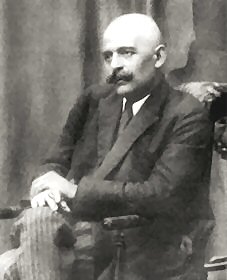A Quote by L.E. Modesitt Jr.
Love of another is merely empty flattery and self-deception for one who cannot accept himself without pretense.
Related Quotes
What is the most fascinating kind of self-deception to me, and a kind that isn't necessarily unhealthy, is what Friedrich Nietzsche called "strategic self-deception." The kind of self-deception that you can engage in with your eyes wide open. You do it because you say, "There's things that I couldn't accomplish without this kind of self-deception."
It is one step, and a giant one, to see clearly and participate in the love that flows between the persons of the Trinity, but even here, God is seen as the object of his own love. It is yet another step to realize that God is beyond all subject and object and is Himself love without subject or object. This is the step beyond our highest experiences of love and union, a step in which self is not around to divide, separate, objectify or claim anything for itself. Self does not know God; it cannot love him, and from the beginning has never done so.
We have the need to be accepted and to be loved by others, but we cannot accept and love ourselves. The more self-love we have, the less we will experience self-abuse. Self-abuse comes from self-rejection, and self-rejection comes from having an image of what it means to be perfect and never measuring up to that ideal. Our image of perfection is the reason we reject ourselves the way we are, and why we don't accept others the way they are.
If we are not empty, we become a block of matter. We cannot breathe, we cannot think. To be empty means to be alive, to breathe in and to breathe out. We cannot be alive if we are not empty. Emptiness is impermanence, it is change. We should not complain about impermanence, because without impermanence, nothing is possible.
...being human always points, and is directed, to something, or someone, other than oneself—be it meaning to fulfill or another human being to encounter. The more one forgets himself—by giving himself to a cause to serve or another person to love—the more human he is and the more he actualizes himself.... What is called self-actualization is not an attainable aim at all, for the simple reason that the more one would strive for it, the more he would miss it. In other words, self-actualization is possible only as a side-effect of self-transcendence.
If love is the soul of Christian existence, it must be at the heart of every other Christian virtue. Thus, for example, justice without love is legalism; faith without love is ideology; hope without love is self-centeredness; forgiveness without love is self-abasement; fortitude without love is recklessness; generosity without love is extravagance; care without love is mere duty; fidelity without love is servitude. Every virtue is an expression of love. No virtue is really a virtue unless it is permeated, or informed, by love.
Our friends should be our incentives to right, but not only our guiding, but our prophetic, stars. To love by right is much, to love by faith is more; both are the entire love, without which heart, mind, and soul cannot be alike satisfied. We love and ought to love one another, not merely for the absolute worth of each, but on account of a mutual fitness of temporary character.
There is no formula for generating the authentic warmth of love. It cannot be copied. You cannot talk yourself into it or rouse it by straining at the emotions or by dedicating yourself solemnly to the service of mankind. Everyone has love, but it can only come out when he is convinced of the impossibility and the frustration of trying to love himself. This conviction will not come through condemnations, through hating oneself, through calling self love bad names in the universe. It comes only in the awareness that one has no self to love.



































